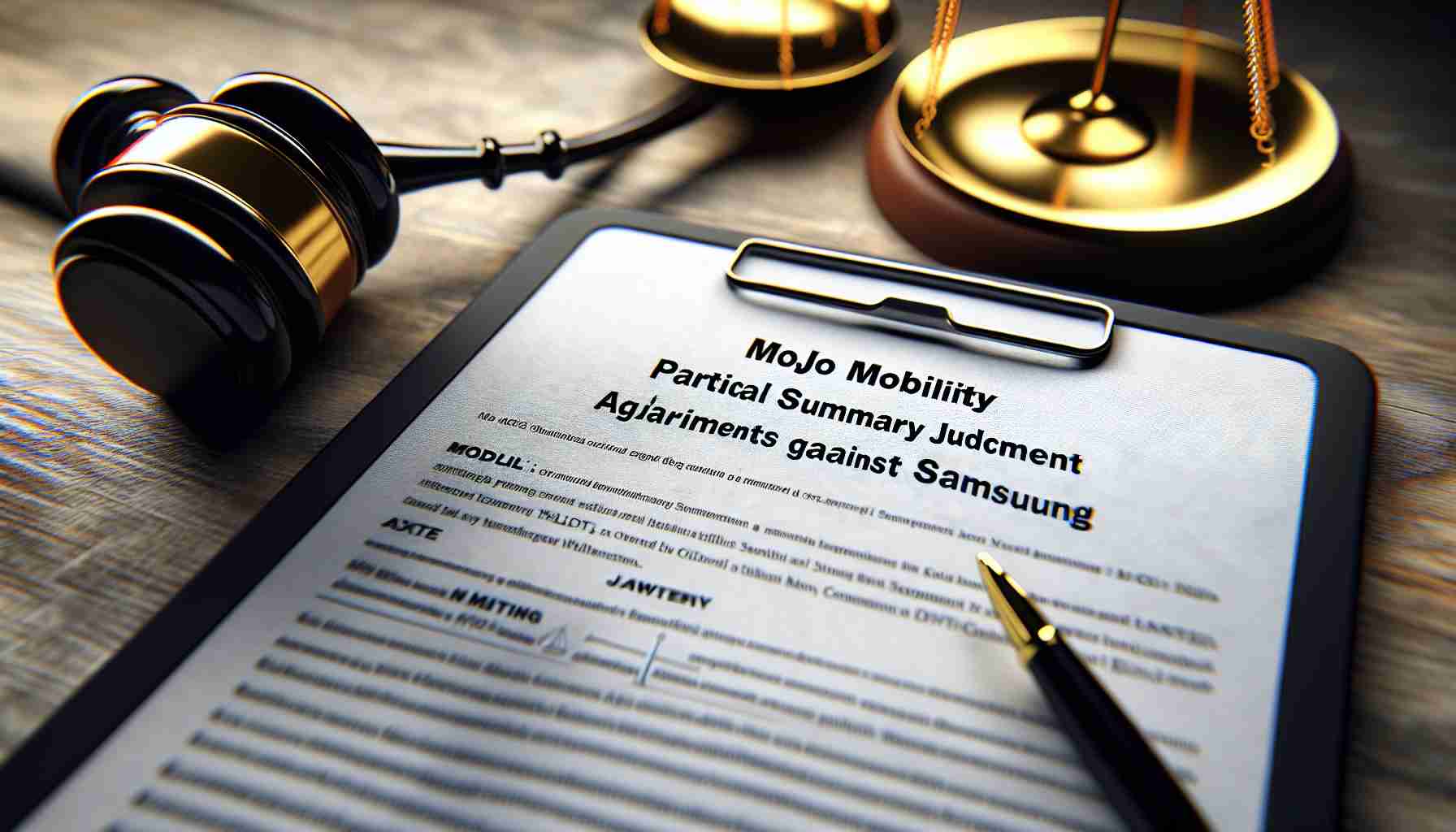A Texas federal magistrate judge has denied Mojo Mobility’s request for a partial summary judgment in its legal confrontation with Samsung over alleged infringement of wireless charging patents. The court’s decision was not swayed by Mojo Mobility’s argument, which relied on certain aspects of the patent prosecution process.
Mojobility’s legal strategy to leverage a specific phase of the patent prosecution to bolster its case against Samsung was unsuccessful. The refusal to grant a partial summary judgment means that the dispute will require further examination and cannot be resolved based on Mojo Mobility’s current assertions.
While Mojo Mobility took an aggressive approach to claim its rights over wireless charging technology, the dexterity of the judicial system to consider every facet before making a decision stood evident in this case. The complexities of patent law are apparent in such cases where cutting-edge technologies and intellectual property rights intersect, demonstrating that patent litigation is a meticulous process requiring comprehensive analysis and consideration.
As this legal tussle progresses, the tech industry will be observing closely. The outcome has the potential to set precedents regarding intellectual property enforcement and innovation within the realm of wireless technology. Meanwhile, both Mojo Mobility and Samsung are preparing for the next phase of their legal confrontation, where each will have to present more in-depth arguments to make their case.
In the broader context of patent litigation, particularly in the technology sector, there are several important questions and challenges associated with Mojo Mobility’s failed attempt to secure a partial summary judgment against Samsung:
Key Questions:
1. What are the specific patents Mojo Mobility claimed Samsung infringed upon?
2. On what technical or legal grounds did the judge base their decision to deny partial summary judgment?
3. How does this ruling affect the future of wireless charging technology and its development?
Challenges and Controversies:
– Determining patent infringement requires a fine-grained analysis of technology, which can be extremely complex.
– There’s often a grey area in interpreting patent claims, which can make judgments difficult and enforcements contentious.
– These kinds of legal disputes can stifle innovation if companies are tied down with protracted litigation.
– The ambiguous and often lengthy nature of patent lawsuits can discourage small companies from defending their intellectual property due to potential high costs.
Advantages and Disadvantages:
– Advantages: The legal process ensures that patents are carefully scrutinized, which protects the integrity of intellectual property laws.
– Disadvantages: Long legal battles are costly and can consume significant resources for both parties. They may also delay the introduction of new technologies to the market.
For those interested in learning more about the background of patent law and intellectual property rights, exploring the United States Patent and Trademark Office could provide valuable insight. You can find more information by following this link to the main domain: United States Patent and Trademark Office.
Please note that specific links to companies or court documents, if necessary, must be found separately as they are not provided. However, both Mojo Mobility’s and Samsung’s corporate websites may have press releases or statements regarding the ongoing litigation:
– For information on Mojo Mobility: Mojo Mobility
– For information on Samsung: Samsung
The source of the article is from the blog maltemoney.com.br
